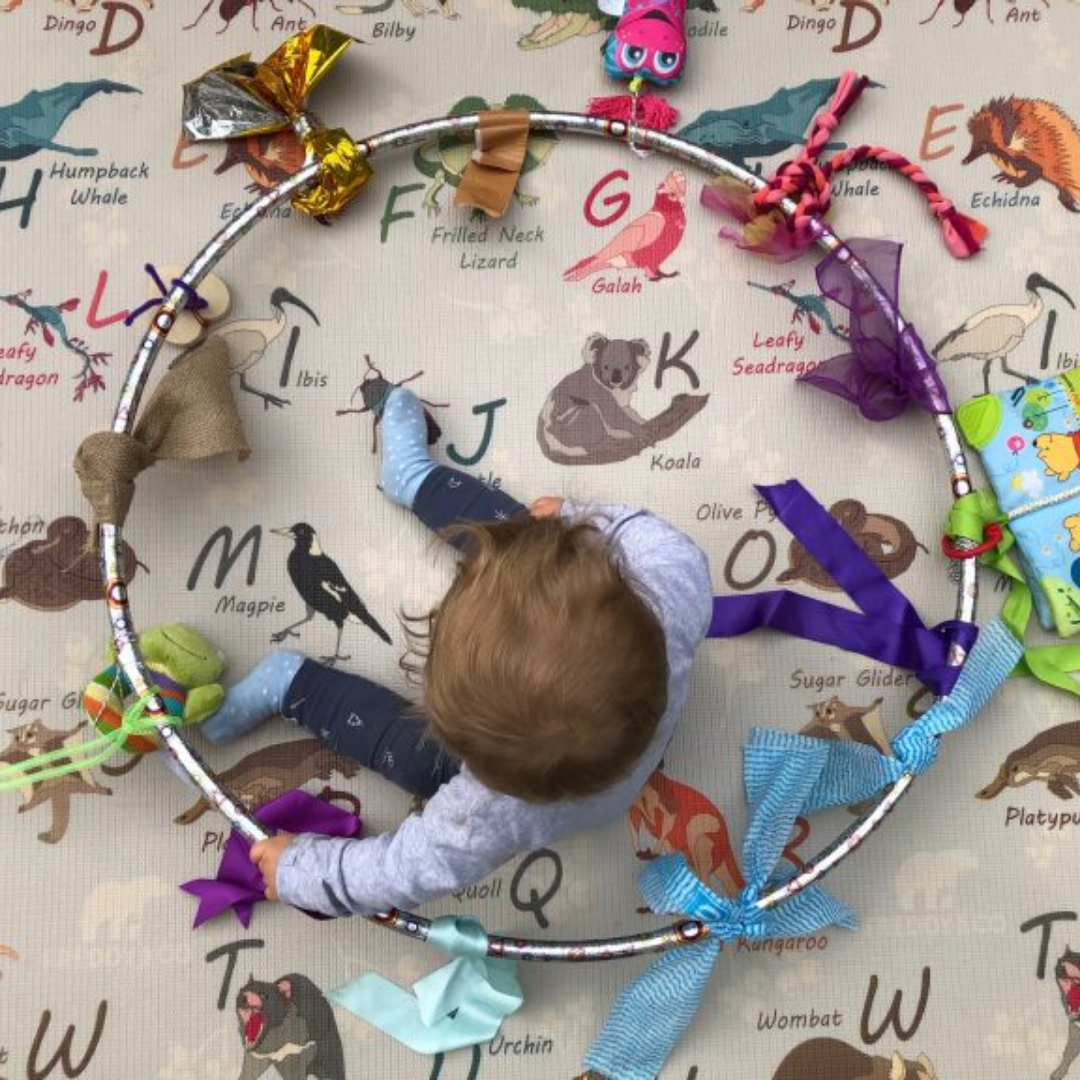
Let's talk sensory play....
Have you ever tried to describe the smell of wet grass as you walk across it, or the taste of a warm freshly baked biscuit? It is not just one sense that we use to describe these things, but a combination of many senses.

Ethan playing with his sensory hoop. His mum @thefoolishobsession was our inspiration to give this a go. Featuring our Roadtrip play mat with Blue Geo.
Today we are focusing on baby sensory play and the benefits on their brain development as they have opportunities to explore the world through their senses. Exposure to a range of stimulating environments allows babies to understand themselves in their environment.
So why is this important? As babies move from the newborn stage into the infant stage, their senses continue to develop. Research suggests the sense of smell, taste, sound and touch all develop while baby is still in the womb; they taste what we eat, smell what we smell, hear our voices and respond to touch when pressed. It’s the sense of sight that undergoes the most significant change after they are born. Maybe this is why we tend to focus on visual stimulation for babies. However, it is important not to neglect the other senses.
What is sensory play? Sensory play is any activity that encourages your baby to explore the world around them using a combination of multiple senses. Finding materials around the house which have unusual textures to touch, make a range of sounds, and are visually appealing are important as their senses develop. Sensory play also encourages movement, balance and confidence to explore. As babies get older you can also introduce sensory foods to further develop these but today, we are focusing on infants so that one's for another day.
Making a sensory hoop, for your babies sensory play:
What you need:
1 x hoolahoop
Sensory items: Here are some ideas to get you started but you’re only limited by your own imagination:

Some of the things we found lying around the house for a sensory hoop.
Fabrics such as tulle, silk, chiffon, corduroy, flannel, toweling – raid Nana's scraps pile (most fabric stores also have remnants boxes).
Ribbons (of various size, colour and texture), sequin trim, pom poms, felt pieces, velcro strips
Toys, balls, dummies, teething rings, fabric books, fabric rattles.
Scarves, bibs, wool, bath mesh sponge, bath toys, gift wrap bow, cleaning cloth, bubble wrap.
What to do?
I purposely bought the $5 glitter hoop from Kmart as this in itself is a sensory item. I started by laying the hoop on a flat surface and positioned my items (without tying them down). This way I could have a look at the balance of objects and make sure I was happy with the placements before I attached everything.
Adorable little Raffy playing with his new hoop.
I then worked my way around the hoop securing all the items. A tip here - if you do loose bows or loops with the plan to reuse materials later - make sure you supervise. Little fingers have a way of undoing loose knots. Instead we recommend securing items tightly to reduce risk. Once all the different textures and items are safely attached your hoop is ready for some play time.
Have you tried it? Make sure you tag us @freddy.and.co on both Instagram or Facebook as we’d love to see your handy work.
Note: As with all play activities, you must always supervise your baby when playing with sensory hoops. As babies may explore with their mouths, make sure all these items are clean without any loose pieces that can be pulled off or swallowed.
